第46章 THE DEVELOPMENT OF THE INDIVIDUAL(6)
Amid all these preparations outwardly to win and secure fame, the curtain is now and then drawn aside, and we see with frightful evidence a boundless ambition and thirst after greatness, regardless of all means and consequences.Thus, in the preface to Machiavelli's Florentine history, in which he blames his predecessors Leonardo, Aretino and Poggio for their too considerate reticence with regard to the political parties in the city: 'They erred greatly and showed that they understood little the ambition of men and the desire to perpetuate a name.How many who could distinguish themselves by nothing praiseworthy, strove to do so by infamous deeds! ' Those writers did not consider that actions which are great in themselves, as is the case with the actions of rulers and of States, always seem to bring more glory than blame, of whatever kind they are and whatever the result of them may be.In more than one remarkable and dreadful undertaking the motive assigned by serious writers is the burning desire to achieve something great and memorable.This motive is not a mere extreme case of ordinary vanity, but something demonic, involving a surrender of the will, the use of any means, however atrocious, and even an indifference to success itself.In this sense, for example, Machiavelli conceives the character of Stefano Porcari; of the murderers of Galeazzo Maria Sforza (1476), the documents tell us about the same; and the assassination of Duke Alessandro of Florence (1537) is ascribed by Varchi himself to the thirst for fame which tormented the murderer Lorenzino Medici.Still more stress is laid on this motive by Paolo Giovio.Lorenzino, according to him, pilloried by a pamphlet of Molza, broods over a deed whose novelty shall make his disgrace forgotten, and ends by murdering his kinsman and prince.These are characteristic features of this age of overstrained and despairing passions and forces, and remind us of the burning of the temple of Diana at Ephesus in the time of Philip of Macedon Ridicule and Wit The corrective, not only of this modern desire for fame, but of all highly developed individuality, is found in ridicule, especially when expressed in the victorious form of wit.We read in the Middle Ages how hostile armies, princes, and nobles, provoked one another with symbolical insult, and how the defeated party was loaded with symbolical outrage.Here and there, too, under the influence of classical literature, wit began to be used as a weapon in theological disputes, and the poetry of Provence produced a whole class of satirical compositions.Even the Minnesanger, as their political poems show, could adopt this tone when necessary.But wit could not be an independent element in life till its appropriate victim, the developed individual with personal pretensions, had appeared.Its weapons were then by no means limited to the tongue and the pen, but included tricks and practical jokes -- the so-called 'burle' and 'beffe'-- which form a chief subject of many collections of novels.
The 'Hundred Old Novels,' which must have been composed about the end of the thirteenth century, have as yet neither wit, the fruit of contrast, nor the 'burla,' for their subject; their aim is merely to give simple and elegant expression to wise sayings and pretty stories or fables.But if anything proves the great antiquity of the collection, it is precisely this absence of satire.For with the fourteenth century comes Dante, who, in the utterance of scorn, leaves all other poets in the world far behind, and who, if only on account of his great picture of the deceivers, must be called the chief master of colossal comedy.With Petrarch begin the collections of witty sayings after the pattern of Plutarch (Apophthegmata, etc.).